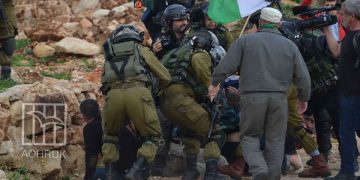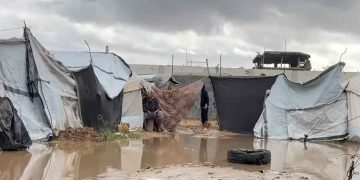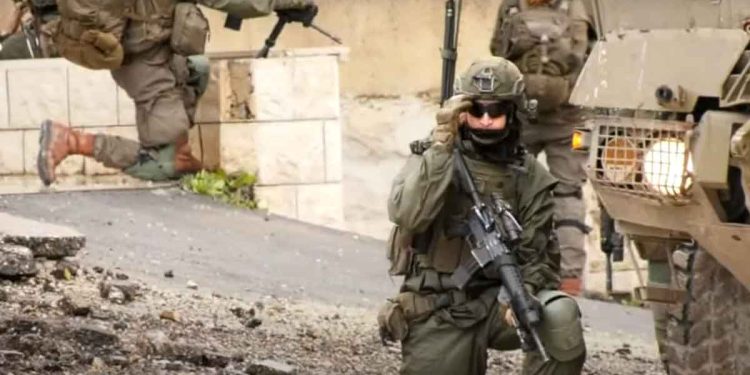For the 111th consecutive day, Israeli forces have continued extensive military operations in the West Bank city of Tulkarm and its two adjacent refugee camps, imposing a protracted siege, carrying out house demolitions, and forcibly displacing residents. Entire residential districts have been transformed into militarised zones, severely restricting civilian movement and access.
In Nour Shams camp, the siege has now entered its 98th day, with daily incursions involving the destruction of infrastructure and repeated targeting of civilians and private property. Military vehicles frequently enter the area, using loudspeakers, obstructing traffic, erecting ad hoc checkpoints—particularly around the city centre and main entry points—and detaining individuals, particularly young men, for searches and questioning.
Recent operations have intensified in the southern district of Tulkarm, particularly beneath the Jabara bridge, where ground forces have been reported stopping vehicles, closing the road for extended periods, and conducting searches that have paralysed access to neighbouring villages.
According to local sources, more than 20 residential buildings have been demolished in Nour Shams in recent weeks, resulting in the forced displacement of thousands of residents. Neighbourhoods such as Al-Manshiya, Al-Maslakh, Al-Jami’, Al-Shuhada, and Al-Iyada have been among the hardest hit. Plans have reportedly been drawn up to demolish over 100 additional buildings in both camps.
Official figures indicate that the military campaign has left 13 Palestinians dead, including a child and two women, one of whom was eight months pregnant. Dozens more have been injured or arrested. Over 400 homes have been completely destroyed, and nearly 2,600 others have sustained partial damage. Commercial properties and civilian vehicles have also been affected by shelling, arson, and vandalism.
The pattern of destruction, road closures, and earth barriers at camp entrances points to a deliberate effort to isolate and depopulate certain areas. Human rights observers have raised concerns that these operations appear aimed at altering the demographic landscape of the city by forcibly removing residents and establishing long-term military control.
In the eastern suburb of Dhinnaba, Israeli forces were reported to have stormed through civilian streets at high speed, damaging property including a parked vehicle, in what has been described by local residents as part of a broader strategy of intimidation.
Further reports confirm that forces have taken over residential properties in Nablus Street and the northern district of the city, expelling occupants and converting the buildings into military outposts. The use of civilian homes for military purposes constitutes a violation of international humanitarian law, particularly the Geneva Conventions.
These developments in Tulkarm and its camps represent widespread and systematic violations of international legal norms. Under the Fourth Geneva Convention, the destruction of property not justified by military necessity, the forced displacement of civilians, and the inhumane treatment of protected persons are defined as war crimes. Collective punishment of civilians is expressly prohibited.
The scale of destruction, imposition of siege conditions, and isolation of refugee camps suggest an effort to eliminate their presence and disrupt Palestinian continuity. These actions reflect a broader policy trend aimed at dismantling refugee communities and reshaping the demographic map of the West Bank through territorial expansion and structural coercion.
In light of the ongoing violations, there have been urgent calls for the international community to move beyond condemnation and act decisively to protect civilians, end the displacement campaign, and ensure accountability for the mounting toll of damage and suffering caused by continued military operations.
























